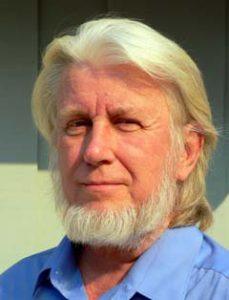From Circular Conversations:
 David Ellerman works in disparate fields, from economics and political economy, to social theory and philosophy, to mathematical logic and quantum mechanics. From 1992 to 2003, he worked, at the World Bank, as economic advisor to the Chief Economist (Joseph Stiglitz and Nicholas Stern). He has published numerous articles and books, among which The Democratic Worker-Owned Firm (1990), Property and Contract in Economics: The Case for Economic Democracy (1992), and Helping People Help Themselves: From the World Bank to an Alternative Philosophy of Development Assistance (2005). He is currently visiting scholar at the University of California, Riverside and the University of Ljubljana, Slovenia.
David Ellerman works in disparate fields, from economics and political economy, to social theory and philosophy, to mathematical logic and quantum mechanics. From 1992 to 2003, he worked, at the World Bank, as economic advisor to the Chief Economist (Joseph Stiglitz and Nicholas Stern). He has published numerous articles and books, among which The Democratic Worker-Owned Firm (1990), Property and Contract in Economics: The Case for Economic Democracy (1992), and Helping People Help Themselves: From the World Bank to an Alternative Philosophy of Development Assistance (2005). He is currently visiting scholar at the University of California, Riverside and the University of Ljubljana, Slovenia.
Hi David, it is a pleasure to host you for a talk in this convivial parlour. The first major topic I would like to touch upon during our conversation is democratic firms; a topic you have extensively dealt with and are an ardent proponent of. As an introductory question, how do the institutional design and governance arrangements of a democratic firm look like?
A democratic firm is a private democratic organization where the members or ‘citizens’ are the people working in the firm. A democratic firm—like, say, a democratic city—does not have owners, but has citizens. The members of the firm elect the board of directors who appoint the managers. The members may also supply capital to the firm in the form of a membership fee and retained earnings kept track of in an internal capital account, but their membership rights (i.e. voting rights and share of net income) are independent of the balance ‘in’ their internal capital accounts. These capital accounts are essentially a subordinate form of debt of the company to the members to be paid out over the years. There is no equity capital in a democratic firm any more than in a democratic municipality.
More here.
